
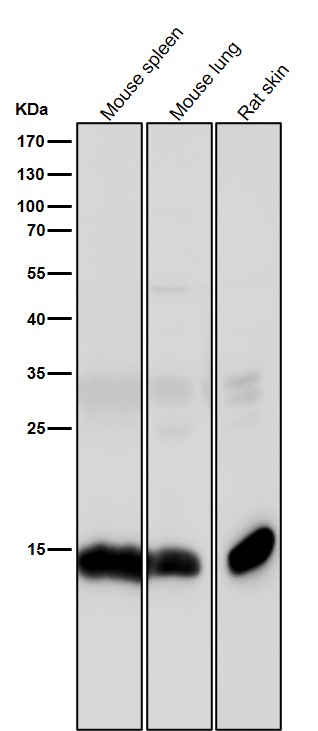
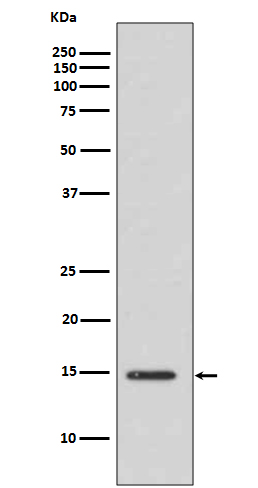
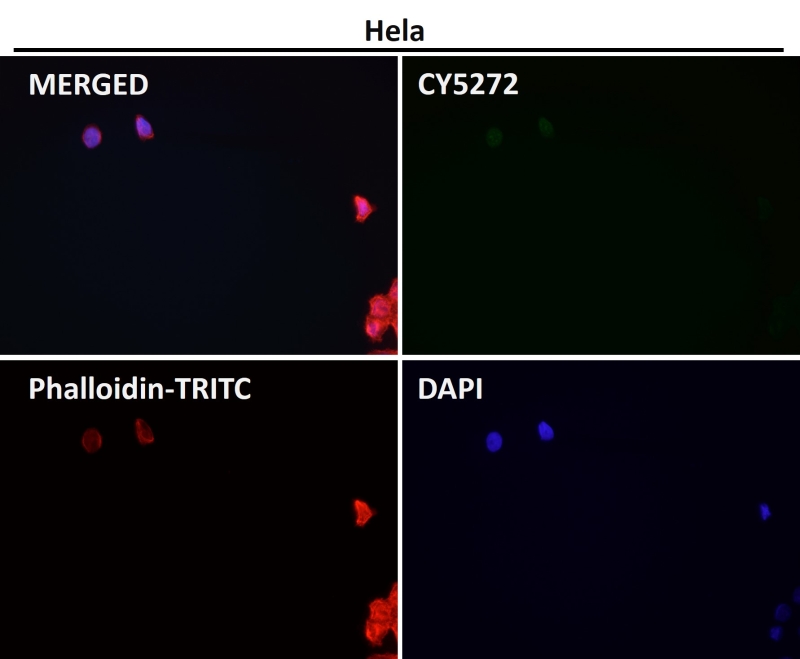
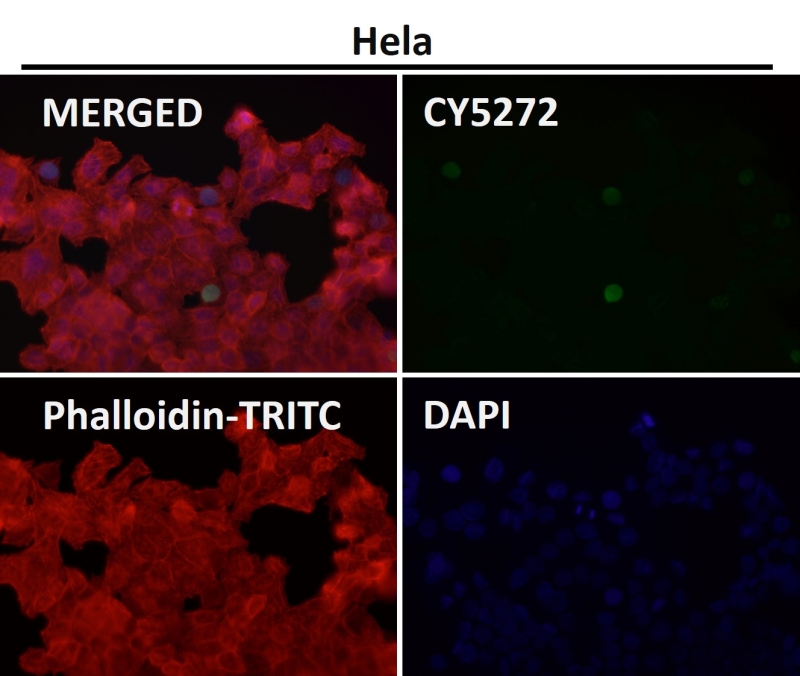
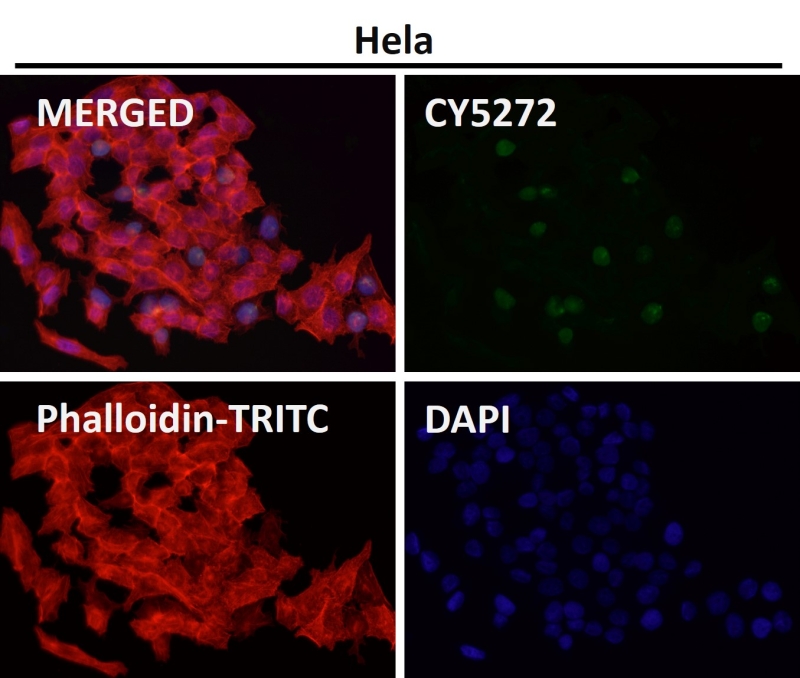
| WB | 咨询技术 | Human,Mouse,Rat |
| IF | 1/20-1/50 | Human,Mouse,Rat |
| IHC | IHC:1/100-1/200;IHF:1/50-1/200 | Human,Mouse,Rat |
| ICC | 1/50-1/200 | Human,Mouse,Rat |
| FCM | 咨询技术 | Human,Mouse,Rat |
| Elisa | 咨询技术 | Human,Mouse,Rat |
| Aliases | H3 histone family, member A; H3/A; H31; H3FA; H3FB; H3FC; H3FD; H3FF; H3FH; H3FI; H3FJ; H3FK; H3FL; HIST1H3A; HIST1H3B; HIST1H3C; HIST1H3D; HIST1H3E; HIST1H3F; HIST1H3G; HIST1H3H; HIST1H3I; HIST1H3J; histone 1, H3a; histone cluster 1, H3a; Histone H3.1;;Acetyl-Histone H3 (K15) |
| WB Predicted band size | 15 kDa |
| Host/Isotype | Rabbit IgG |
| Antibody Type | Primary antibody |
| Storage | Store at 4°C short term. Aliquot and store at -20°C long term. Avoid freeze/thaw cycles. |
| Species Reactivity | Human,Rat |
| Immunogen | A synthesized peptide derived from human Histone H3.1 around the acetylation site of K15 |
| Formulation | Purified antibody in PBS with 0.05% sodium azide,0.05% BSA and 50% glycerol. |
+ +
以下是关于Histone H3(acetylK14)抗体的3篇参考文献示例,涵盖其在染色质调控和疾病研究中的应用:
1. **文献名称**: *"Histone Acetylation in Gene Regulation and Cancer"*
**作者**: Strahl BD, Allis CD
**摘要**: 该综述总结了组蛋白乙酰化(包括H3K14ac)在基因表达调控中的作用,强调使用特异性抗体(如H3K14ac抗体)通过ChIP实验解析启动子区域的乙酰化状态,及其在癌症表观遗传失调中的意义。
2. **文献名称**: *"Covalent modification of histones during development and disease pathogenesis"*
**作者**: Berger SL, et al.
**摘要**: 研究利用H3K14ac抗体分析胚胎干细胞分化过程中染色质动态变化,发现该修饰与多能性基因激活相关,并探讨了其在神经退行性疾病中的异常分布。
3. **文献名称**: *"Selective recognition of acetylated histones by bromodomains"*
**作者**: Mujtaba S, et al.
**摘要**: 通过H3K14ac抗体验证组蛋白乙酰化与BET蛋白溴结构域的结合,揭示其调控基因转录的分子机制,为靶向癌症治疗提供依据。
(注:上述文献为示例,实际引用需核实真实存在的论文。)
The Histone H3 (acetylK14) antibody is a crucial tool in epigenetics research, specifically targeting histone H3 acetylated at lysine 14 (H3K14ac). Histone H3 is a core component of nucleosomes, playing a vital role in chromatin structure and gene regulation. Post-translational modifications, such as acetylation, modulate chromatin accessibility and transcriptional activity. Acetylation of lysine 14 on histone H3 is associated with transcriptional activation, as it reduces histone-DNA interactions, loosens chromatin compaction, and recruits bromodomain-containing proteins that facilitate transcriptional machinery assembly.
This modification is dynamically regulated by histone acetyltransferases (HATs) and deacetylases (HDACs). H3K14ac is enriched at promoter regions of actively transcribed genes and correlates with cell differentiation, DNA repair, and stress responses. Dysregulation of H3K14ac has been implicated in cancer, neurodegenerative diseases, and developmental disorders.
The Histone H3(acetylK14) antibody enables detection of this epigenetic mark via techniques like chromatin immunoprecipitation (ChIP), immunofluorescence, and Western blotting. Its specificity makes it valuable for studying gene expression patterns, chromatin remodeling dynamics, and the functional impact of acetylation in disease models or drug development. Validation using knockout/knockdown models or peptide competition assays is recommended to ensure target specificity in experimental systems.
×